MEDIA FOR CHANGE NETWORK
Artisanal miners’ agonizing tales at the hands of mineral police
Published
5 years agoon
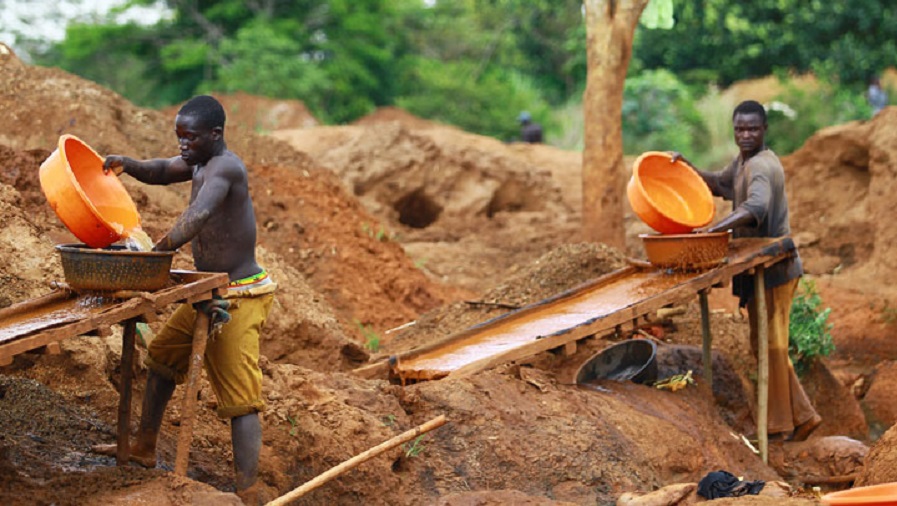
A police officer hit me with a baton, I became unconscious, only to wake in hospital,” narrates Fred Ssentamu as he displays scars from beatings when The Observer visited his home in Lugingi, Kitumbi sub-county, Kassanda.
Ssentamu is one of the hundreds of artisanal and small-scale gold miners who have suffered human rights violations at the hands of the Police Minerals Protection Unit (PMPU). These violations include intimidation, extortion, confiscation of ores, physical abuse as well as displacement from villages.
These allegations of brutal harassment and human rights violations of artisanal miners at the hands of PMPU are common in many gold, tin, tantalum and tungsten mining areas mainly in central and western Uganda. “These police officers are to too brutal,” Ssentamu says.
Indeed, his testimony is not an isolated case as The Observer found out. His neighbour shares a similar harrowing tale, “A police officer ordered me to kneel on piercing stones as his colleague handcuffed me. Then, another afande [police officer] was beating me in front of my children,” she narrates.
To foot the medical bill, Ssentamu says, his family sold his motorcycle for Shs 3 million. Artisanal gold miners in many parts of the country accuse the PMPU of hiding under the cover of cleansing the minerals sector of illegal mining to harass, torture and even maim artisanal miners, among other human rights violations.
Miners say, instead of offering local protection, the PMPU officers have turned their guns against civilians and artisanal miners. “It is a whip and a gun that rule in these mines,” another miner narrates, before asking the police leadership to rein in errant PMPU officers.
BACKGROUND
The PMPU was created in 2017 by the then Inspector General of Police (IGP) Gen Kale Kayihura. It is charged with, among others, inspection, monitoring and surveillance to detect and prevent illegal mining as well as to sensitize mining communities on safe mining practices. Gen Kahiyura appointed Superintendent of Police (SP) Jessica Keigomba to head the unit.
However, three years after its creation, PMPU is on the spotlight again over human rights violations and involving itself in illegal mining. Simon Alibariho, artisanal miner at Katenga goldmine in Buhweju district, remembers when PMPU violently evicted them from the mines which left some miners nursing injuries.
“When they [police] came, they started beating us without any explanation. Some people were injured in the process. We are Ugandans; why is police beating us when we are here to eke out a living, even cows are no longer beaten,” Alibariho wonders. He says though artisanal miners mine without licences, it shouldn’t be a ground for beating and treating them violently.
EXTORTION AND SHOOTINGS
In an ugly incident of human rights violations, a police officer attached to PMPU shot and injured an artisanal miner following a simple verbal exchange in Lugingi mine recently.
“We failed to agree with the officer; so, he told me “I promised to shoot you in the head.” Those are the last words I heard; the next thing I woke up in hospital in pain nursing injuries from gunshots,” one of the miners in Kassanda district narrates.
In a clear manifestation of impunity, the officer has never been reprimanded, arrested or prosecuted for the shooting. In June, 2020, John Mufumbira, one of the artisanal miners and a member of Kassanda Miners Association, complained to the police Professional Standards Unit (PSU) against Superintendent of Police Sarah Mwesigwa, who is the administration and finance officer of PMPU, over the unit’s harassment and human rights violations against artisanal miners.
However, Mufumbira says to date he has not received any response. Francis Mwijukye, the Buhweju MP, concurs with artisanal miners on the brutality of PMPU officers. “These police officers are extorting money. If you don’t give them money, they will chase you away and the process of chasing is dehumanizing,” he notes.
Carolyne Nakajubi, the extractive governance officer at ActionAid International Uganda, says it is unfortunate that PMPU has misused its mandate to stamp out illegal mining and instead turned its guns on the civilian mining population. She urges PMPU to respect and uphold human rights in enforcing the law.
Henry Nickson Ogwal, the director, Programs and Policy at ActionAid Uganda, calls for the probe into PMPU. “Those who have evidence on human rights violations shouldn’t be intimidated when they talk. Such violation is unacceptable in a democratic Uganda and must be probed. Meanwhile, the PMPU command structure and mandate should be reviewed,” Ogwal says.
MINING POLICE!
In addition to human rights violations, PMPU has also been accused of engaging in gold-mining after evicting artisanal miners. “The PMPU has become a mining police. They are the ones now doing the mining,” says Deusdedit Beinomugisha, an artisanal miner from Buhweju.
However, Moses Karakire Musinguzi, the PMPU head of operations, denies the allegation that the unit is engaged in illegal mining activities. “If there is a police officer involved in mining, then he or she should be reported to PSU. You can also take them to court and prosecute them individually if you have evidence,” Musinguzi said recently. “Some of these mistakes are individual, but not institutionalized.”

In a recent interview with NTV Uganda, Sarah Opendi, the minister of state for Energy and Mineral Development, confirmed that some security officials are indeed engaged in illegal mining. “I know some people within the security circles have also gotten involved in mining but I want to tell them that what they are doing is actually wrong. You don’t go and mine simply because you have a gun, which I [artisanal miners] don’t have,” she said, before pledging that offices who have deviated from their cardinal responsibility to switch to mining will be brought to book.
ENTER UHRC
It is on the background of these human rights violations that civil society organizations (CSOs) have asked the Uganda Human Rights Commission (UHRC) to do an investigation into the allegations and bring the culprits to book. In a press statement recently, the CSOs further accuse police of illegal gold mining under the cover of law enforcement.
Don Binyina Bwesigye, the executive director, Africa Centre for Energy and Mineral Policy (ACEMP), says PMPU has overstepped its mandate. “This has exposed artisanal miners to cruel treatment from security organizations such as police and the army,” Bwesigye said in a statement.
Bwesigye argues that without any law, the PMPU has taken over many of the supervisory and regulatory roles that the Mining Act vests in the Directorate of Geological Survey and Mines (DGSM).
“The UHRC should investigate, document and address allegations of human rights abuses meted out on artisanal and small-scale miners and landowners in different regions by PMPU and other security agencies,” the statement reads in part.
Amidst the advocacy, it remains to be seen whether there will be any tangible steps by state institutions to investigate the PMPU, which seems to enjoy impunity in carrying out its operations.
**The Observer
Related posts:
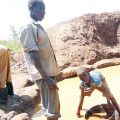
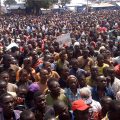 Uganda government ignores its directive on COVID evictions, evicts thousands of smallholder farmers, artisanal miners.
Uganda government ignores its directive on COVID evictions, evicts thousands of smallholder farmers, artisanal miners.
 Police Flying Squad Commander Dies in a Fatal Accident
Police Flying Squad Commander Dies in a Fatal Accident
 Community petitions the Police Professional Standards Unit over the unprofessional conduct of Kiryandongo DPC for abetting land grabs…
Community petitions the Police Professional Standards Unit over the unprofessional conduct of Kiryandongo DPC for abetting land grabs…
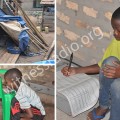 The Innocent and Invisible Victims of Njuba’s Violent Eviction of 120,000 Families Off 12-Square Mile Mineral-Rich Land
The Innocent and Invisible Victims of Njuba’s Violent Eviction of 120,000 Families Off 12-Square Mile Mineral-Rich Land
You may like
-
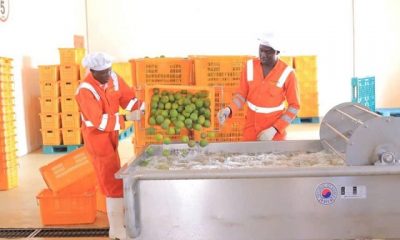

What next for Uganda‘s agricultural surplus?
-
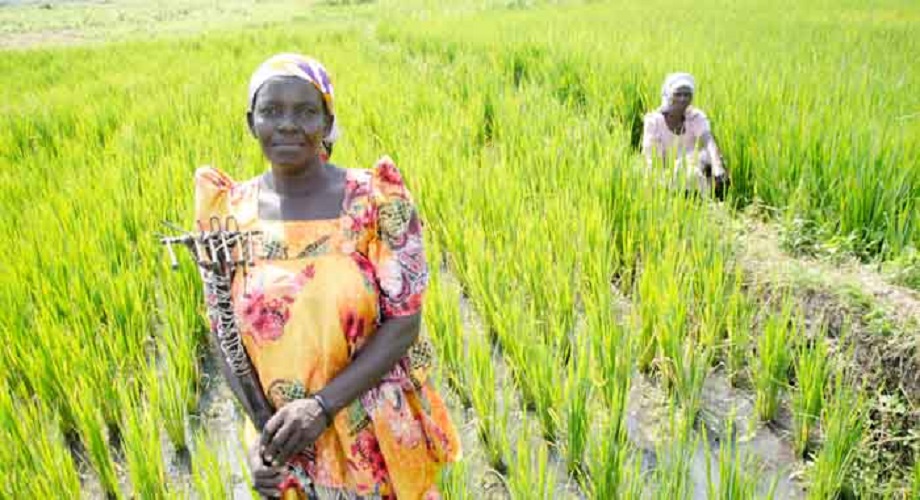

How unequal access to land by women endangers Uganda’s food security
-
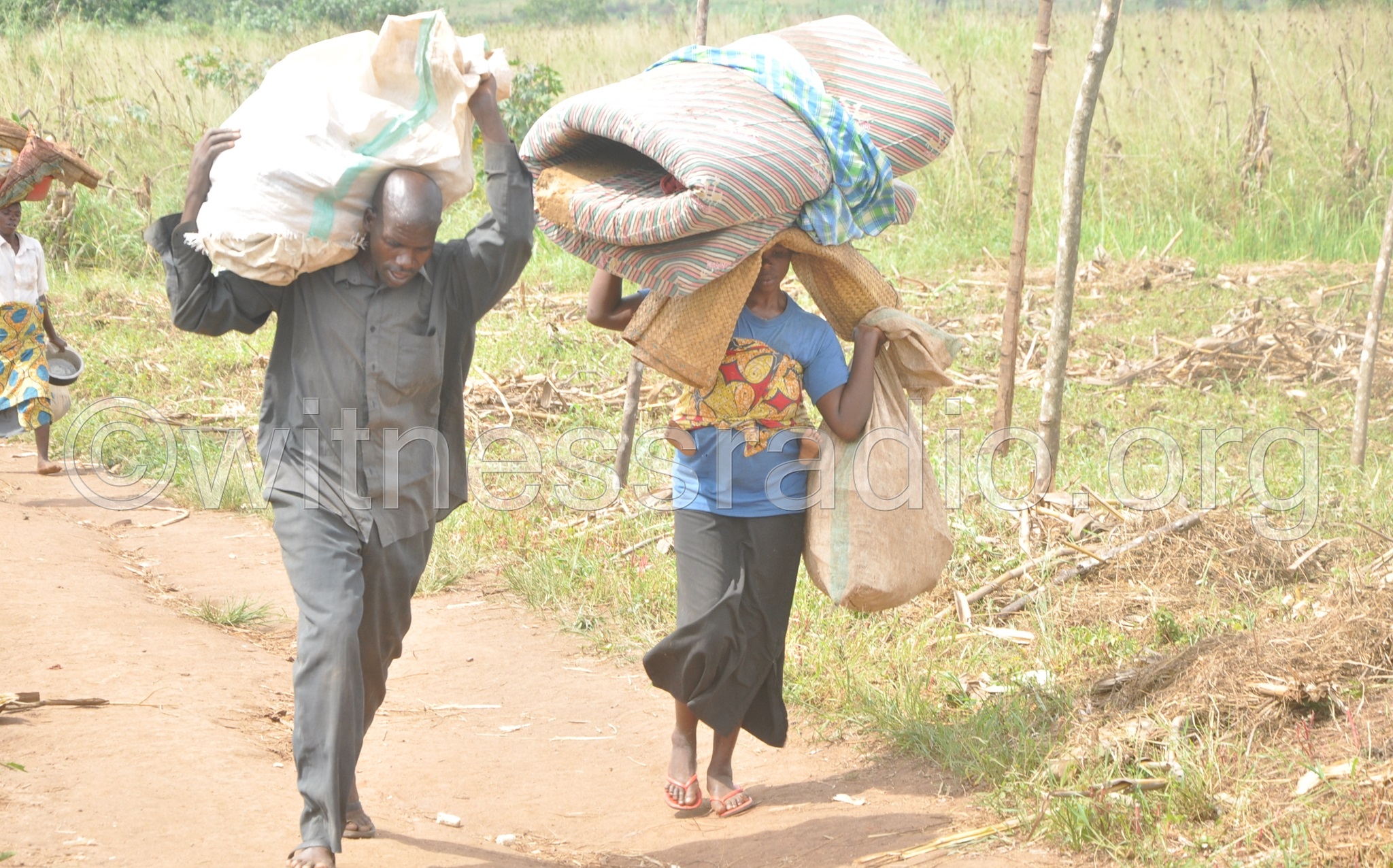

Land grabbers are ‘too powerful’, defied COVID-19 lockdown directives on land eviction – Gov’t
-
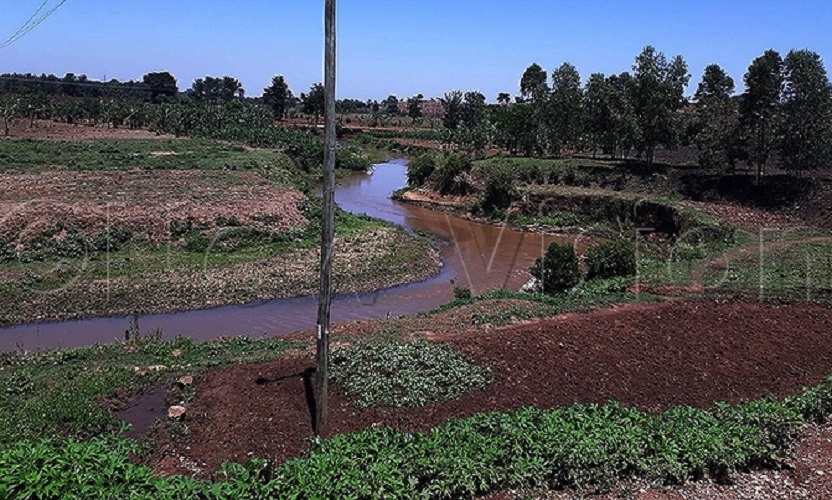

Water depletion looming in Elgon region
-
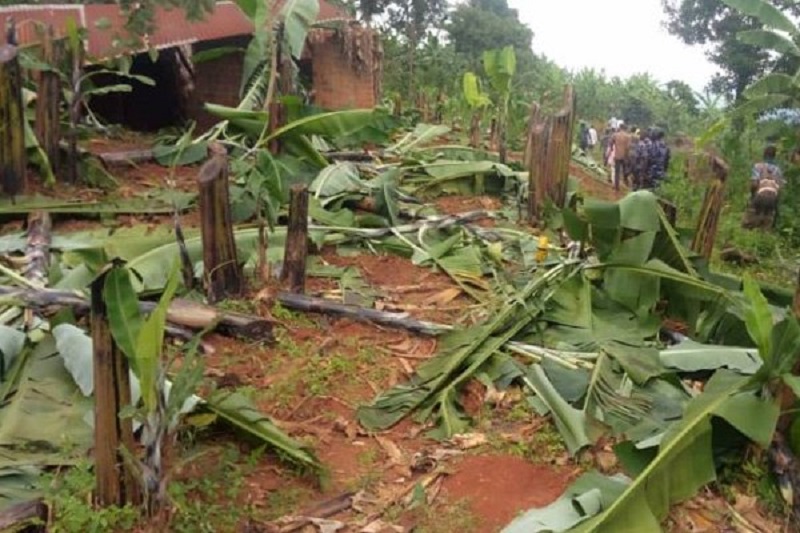

One killed, plantations destroyed in land row
-


Why Are Evictions Still Happening In Kiryandongo: Witness Radio Petitions Government.
MEDIA FOR CHANGE NETWORK
Indigenous communities’ complaint against World Bank-linked Nepal Cable Car Project declared eligible for investigation.
Published
9 hours agoon
February 5, 2026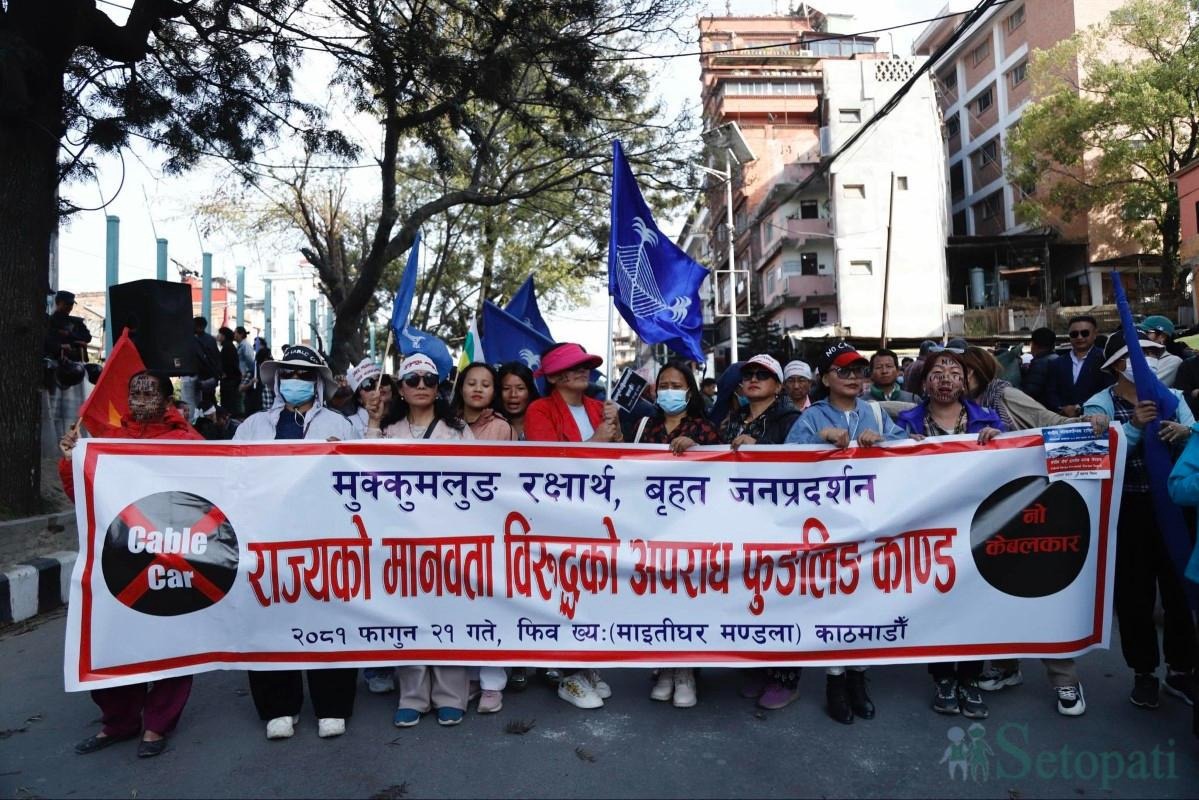
By Witness Radio team
Indigenous Yakthung (Limbu) communities in eastern Nepal have fought hard for recognition after the World Bank Group’s accountability mechanism acknowledged a complaint about rights violations, underscoring their ongoing struggle to protect their land and culture.
The Compliance Advisor Ombudsman (CAO), the independent watchdog of the World Bank Group, accepted the complaint for further assessment and formally registered the case in December 2025. The decision clears the way for a potential mediation process or a full compliance investigation into whether the project breached the IFC’s environmental and social safeguard standards.
In August 2025, Indigenous Yakthung leaders, supported by lawyers and civil society organizations, filed a complaint against the IFC’s advisory support to IME Group for the $22 million Pathivara (Mukkumlung) cable car project in Taplejung District. This filing marks a critical step in holding the project accountable for alleged rights violations and environmental harm.
The cable car is being constructed on Mukkumlung Mountain, a sacred ancestral landscape central to the Yakthung people’s spirituality and Identity, risking irreversible damage to their cultural heritage and Identity.
According to the complainants, construction has already resulted in the felling of more than 10,000 trees in and around the Kanchenjunga Conservation Area, threatening habitats of endangered species such as red pandas, snow leopards, and Himalayan musk deer, underscoring the project’s severe environmental consequences.
“The reason the Complainants and their advisors seek to engage with the CAO is because of the social and environmental harms caused by one of the cable car projects in particular, the Pathivara project. This cable car project has severe impacts on one of the most sacred sites of the Limbu (Yakthung) Indigenous Peoples, including their forests, flora, fauna, heritage (tangible and intangible), and Mukkumlung mountain. The Pathivara project has been imposed on the local Indigenous communities without their Free, Prior, and Informed Consent (FPIC), and has proceeded to destroy their lands, forests, sacred sites, and livelihoods. When the people protest, they have been met with extreme violence and repression by security forces.” The community complaint submitted to the Ombudsman in August 2025 read.
Between August 2022 and July 2024, the IFC provided advisory services to IME Group related to four cable car projects in Nepal, including the Pathivara project. The complainants allege that the IFC failed to ensure that its Environmental and Social Performance Standards, particularly those protecting Indigenous Peoples, were applied.
“The cable car project is tantamount to cultural genocide of the Limbu nation in violation of our rights guaranteed in Nepal’s constitution, the Treaty of 1774 with the Gorkha kingdom, and the UN Declaration on the Rights of Indigenous Peoples,” said Advocate Shankar Limbu, Vice-Chair of LAHURNIP.
Community members say they were unaware of IFC’s involvement until July 2024, nearly two years after construction began, due to the delayed public disclosure of the advisory support.
Accordingly, the complaints stated that the project did not meet the IFC Performance Standards, including failures to assess and manage project impacts, conduct land acquisition, and address involuntary resettlement, among others.
“The IFC’s inability to ensure its client integrated the Performance Standards into the implementation of its plan for delivering cable car projects around Nepal has led to severe breaches of the protections that were supposed to safeguard vulnerable and marginalized communities. Today, Indigenous Limbu communities are being beaten, shot at, arrested, and terrorized for trying to defend their land and way of life,” the community complaints read.
Although the IFC exited the advisory role in 2024, it continues to invest in Global IME Bank, Nepal’s largest commercial bank and a core company within the IME Group. Over the past decade, the IFC has provided more than $50 million in financing to the conglomerate, along with a $500 million trade finance guarantee, which critics say gives the institution ongoing leverage and responsibility.
In its eligibility determination, the CAO found that the complaint met the required criteria, including a plausible link between IFC-supported activities and the alleged environmental and human rights harms. The case has now entered a 90-day assessment phase, during which the CAO will consult with the affected communities, the IFC, and the company involved.
At the end of the assessment, the parties may choose to engage in dispute resolution through mediation or proceed to a full compliance investigation examining whether the IFC failed to follow its own safeguard policies.
The advocates representing the communities welcomed the CAO’s decision.
“We welcome the fact that the CAO has found this complaint eligible, and look forward to working with investigators to uncover how things went so badly wrong. The IFC is currently reviewing its Performance Standards and must learn lessons on consultation, safeguarding cultural heritage and biodiversity, respecting Indigenous Peoples’ rights, and protecting them against retaliation,” Kate Geary, Programme Director at Recourse, one of the organizations that supported the communities in the complaint, reveals.
Further, their appeal is for the CAO to handle the case with utmost urgency. “The CAO investigation into the complaint against the cable car project should move swiftly to remedy ongoing impacts of the project, including retaliations against the local communities,” added Advocate Shankar Limbu.
Indigenous leaders are demanding an immediate halt to construction, the withdrawal of security forces from the area, the release of all IFC-related project documents, and an independent investigation into alleged human rights abuses, urging urgent action to protect their rights and environment.
Related posts:
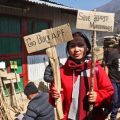
 CSOs call for meaningful changes in the World Bank’s Dispute Resolution Service to foster access to justice for project-affected communities.
CSOs call for meaningful changes in the World Bank’s Dispute Resolution Service to foster access to justice for project-affected communities.
 The World Bank Must Be Held Accountable for Harm Inflicted on Tanzanian Communities by Tourism Project
The World Bank Must Be Held Accountable for Harm Inflicted on Tanzanian Communities by Tourism Project
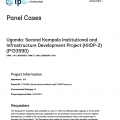 Witness Radio – Uganda and partners welcome a public acknowledgment of the complaint lodged before the World Bank’s Inspection Panel.
Witness Radio – Uganda and partners welcome a public acknowledgment of the complaint lodged before the World Bank’s Inspection Panel.
MEDIA FOR CHANGE NETWORK
The Witness Radio and Seed Savers Network Joint Radio program boosts Farmers’ knowledge of seed and food sovereignty.
Published
2 days agoon
February 4, 2026
By Witness Radio team
Across Africa, seed laws are increasingly structured to favor commercial seed systems, leaving smallholder farmers with limited control over the seeds they rely on for food production. While governments often justify these laws as necessary for quality control and increased productivity, farmers and civil society organizations argue that they deepen dependency, erode Indigenous knowledge, and undermine food sovereignty.
Smallholder farmers produce the majority of the world’s food. Recognizing practices such as saving, exchanging, and replanting seeds can empower farmers and reinforce their vital role in food security.
In response to this challenge, Witness Radio, in partnership with the Seed Savers Network (SSN) in Kenya, is joining hands to save African indigenous seeds by using media to build power and share knowledge and skills with smallholder farmers across Africa and beyond on seed sovereignty and farmer-led food systems.
Last Thursday, Witness Radio and the Seed Savers Network aired the first episode of the program live, featuring representatives of smallholder farmers and civil society organizations from across the African continent. The discussion, which was live on Witness Radio, focused on sharing Indigenous knowledge and practical approaches to saving and conserving African Indigenous seeds.
“It is a crucial time to speak about food sovereignty because, as Indigenous People, talking about food sovereignty is not just an agricultural issue, according to us. It’s a vital act of decolonization and a sign of cultural survival to us and also self-determination.” Said June Bartuin, the Executive Director for Indigenous Peoples’ for peace and climate justice, Kenya, during the first episode of the program.
Across Africa, several policies and laws restrict farmers’ rights to save, exchange, and sell their own seeds. In East Africa, the recently introduced EAC Seed and Plant Varieties Draft Bill 2025 has sparked protests from smallholder farmers and activists, who argue that some of its provisions threaten farmer-led seed systems and favor multinational seed companies.
In Ghana, the Plant Variety Protection Act of 2020 restricts farmers’ seed management practices, underscoring the urgent need for policy reforms that support farmer-led seed systems.
“We have this Plant Variety Protection Act of 2020, which has made it easier for seed companies and the commercial sector to control the seed system,” said Atim Robert Anaab, who works with Trax Ghana and the Beela Project in Northern Ghana, adding that, “The law requires seeds to be certified according to standards that most small-scale farmers simply cannot meet.”
Such laws have reshaped Africa’s food systems by pushing farmers toward commercial seeds that must be purchased every planting season. These seeds are often sold alongside chemical fertilizers and pesticides, significantly increasing production costs for smallholder farmers.
Priscilla Nakato, Chairperson of the Informal Alliance of Communities Affected by Irresponsible Land-Based Investments in Uganda, noted that these policies have also displaced traditional storage and seed preservation practices.
“In the past, every household had a granary, used not only to store food but also to preserve seeds for the next planting season. Many communities still hold this resilience, and reviving these practices can inspire hope for food sovereignty.”
Beyond economics, restrictive seed laws are accelerating the erosion of Indigenous knowledge and cultural practices. June Bartuin explained that women were traditionally the custodians of seeds, preserving them using low-cost methods such as smoke storage in traditional houses.
“This maize could be stored for two, three, even five years, and when planted, it germinated very well,” she added.
The collaboration between Witness Radio and the Seed Savers Network brings together grassroots organizing and community media to amplify farmers’ voices. The Seed Savers Network, a grassroots organization based in Kenya, works with more than 500,000 farmers and supports 121 community seed banks across the country.
According to Mercy Ambani, Resource Mobilization Officer at Seed Savers Network, the organization focuses on rebuilding farmers’ confidence, knowledge, and rights, making platforms such as Witness Radio ideal for reaching farmers directly.
“Our vision is to protect seed sovereignty, conserve biodiversity, and strengthen farmers’ rights through policy advocacy and practical action,” she said.
Through initiatives such as the Seed School, farmers, researchers, and activists are trained in seed selection, storage, preservation, and community seed bank management.
“In December 2024, Kenyan farmers achieved a landmark court ruling that struck down parts of the Seed and Plant Varieties Act, showing the power of collective action and legal advocacy to protect farmers’ rights.”
“This ruling showed that there is power in numbers,” said Ambani. “When farmers raise their voices together, change is possible.”
Regional knowledge exchange is also growing. Farmers from Uganda and Ghana who attended the Seed Savers Boot Camp have returned to their communities to establish household seed banks, kitchen gardens, and farmer field schools.
“My home has become a farmer’s field school. People are hungry for this knowledge,” said Nakato.
Without reforms that recognize and protect farmer-managed seed systems, farmers risk losing control over their seeds — and with them, control over food, culture, and livelihoods.
“If we lose our seeds, we lose our culture, our food, and our future,” Bartuin emphasized.
Wokulira Geoffrey Ssebaggala, Team Leader at Witness Radio, highlighted the importance of creating space for farmers to share knowledge and experiences.
“We are providing a platform where farmers and experts can exchange knowledge on sustainable farming practices. We believe this radio content will have a real impact on food and seed sovereignty across Africa.” Mr. Ssebaggala added.
The radio series will continue to provide practical knowledge, farmer voices, and policy analysis to support sustainable agriculture across Africa.
Related posts:

 Happening shortly! Kenya’s upcoming court ruling on the Seed Law could have a significant impact on farmers’ rights, food sovereignty, and the country’s food system.
Happening shortly! Kenya’s upcoming court ruling on the Seed Law could have a significant impact on farmers’ rights, food sovereignty, and the country’s food system.
 Seed Sovereignty: Most existing and emerging laws and policies on seeds are endangering seed saving and conservation on the African continent.
Seed Sovereignty: Most existing and emerging laws and policies on seeds are endangering seed saving and conservation on the African continent.
 The EAC Seed & Plant Varieties Bill, 2025, is a potential threat to smallholder farmers, as it aims to disengage them from the agriculture business, according to experts.
The EAC Seed & Plant Varieties Bill, 2025, is a potential threat to smallholder farmers, as it aims to disengage them from the agriculture business, according to experts.
 Seed Boot Camp: A struggle to conserve local and indigenous seeds from extinction.
Seed Boot Camp: A struggle to conserve local and indigenous seeds from extinction.
MEDIA FOR CHANGE NETWORK
Close to six years on, Pangero Chiefdom subjects still linger in pain after the government army’s forceful takeover of their ancestral land.
Published
2 days agoon
February 3, 2026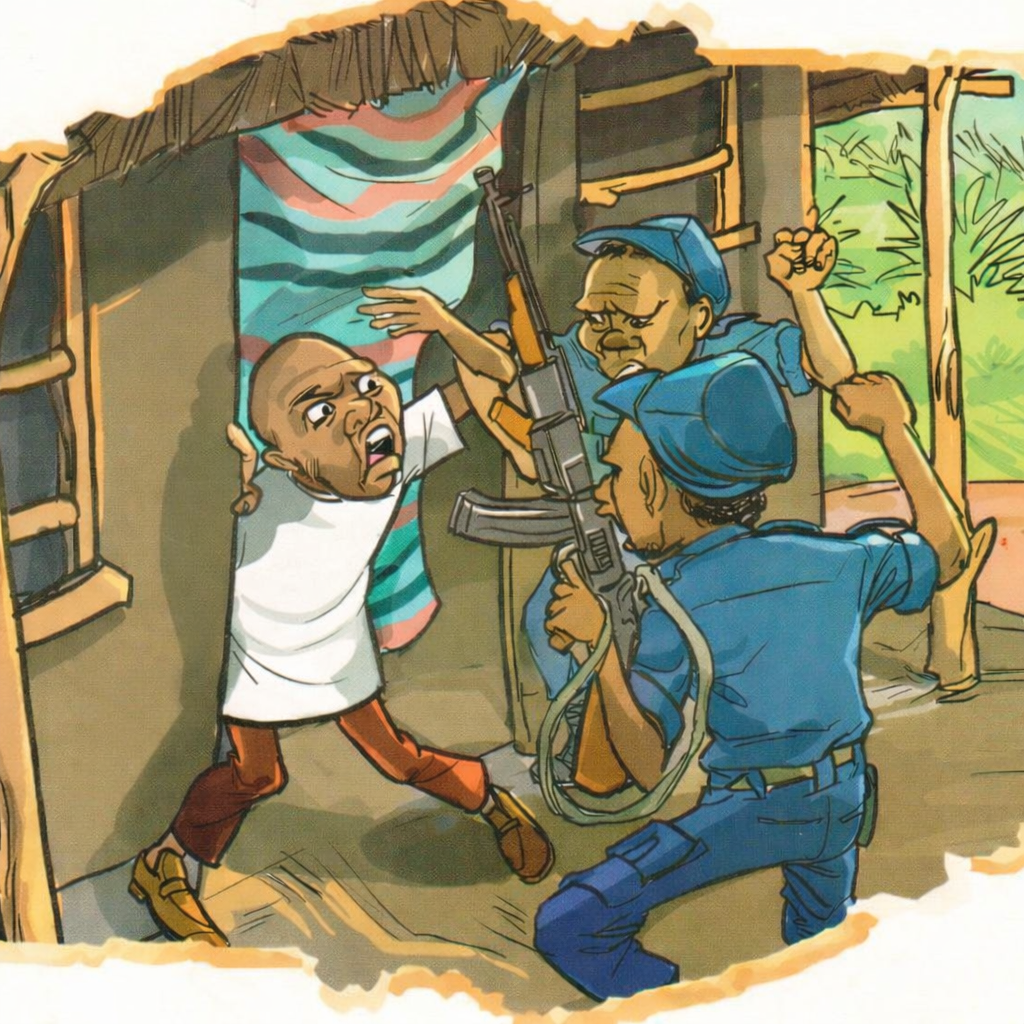
By Witness Radio Team
It was a bolt from the blue—an unimaginable shock that arrived without warning. Close to six years on, its consequences have hardened into everyday reality, and justice remains elusive. That shock was felt most acutely in Pangero Chiefdom, where a once-stable community is still grappling with the aftermath of an abrupt and forceful military land takeover, highlighting ongoing land injustice.
The Pangero Chiefdom of the Alur Kingdom is located in Koch Parish, Nebbi Sub-County, Nebbi District, in north-western Uganda, north of Lake Albert and near the Uganda–DR Congo border. For decades, families here depended on the land for farming, food, and cultural continuity, with traditions and livelihoods deeply tied to the soil.
The wounds from the land loss remain raw, and the community continues to demand the return of their land and justice for their suffering.
Over 100 families across Aleikra, Kochi Central, and Panyabongo villages have been directly impacted by the land grab, according to the Traditional Chief.
In Uganda, land is often taken from people with low incomes through a system lacking explicit legal protections, raising questions about the legitimacy and fairness of land seizures, especially when communities are evicted without free, prior, and informed consent.
“When forces such as the Army occupy community land, people are always afraid even to ask why they are settling or why they have settled on their land. It becomes difficult to question men in uniform,” said Mr. Ulama Dison Duke Ukerson, the Traditional Chief of Pangero Chiefdom, in an interview with Witness Radio Uganda.
In March 2020, hell broke loose in the chiefdom as residents woke up to find UPDF soldiers camping on their land. Many initially thought the soldiers were temporarily stopping over on their way elsewhere. However, after some time, it became clear that the force was not moving on but instead settling in the lush environment of Pangero.
When confronted, residents claim the soldiers explained that they were taking refuge, with Zombo District as their ultimate destination.
“They have stayed there for now, close to six years. Initially, they told us they would take refuge for a few days and later move to the Zombo District. Some left, but others remained. We initially thought they were staying for a few weeks. Since then, they have stayed on our land without paying anything,” said Gladys Budongo, an elder in the chiefdom, in an interview with Witness Radio.
Forty-one-year-old Doreen Kawambe, a resident of Aleikra Village, is among those who lost part of their land during the takeover. Doreen said she originally owned seven acres inherited from her father.
“When the UPDF came, they seized three acres of our land. The remaining land is difficult to access. My family was left with only four acres. We can no longer go to the forest for water, and the areas we used to cultivate are now guarded. Food has become a serious problem,” she said.
Before the takeover, Doreen’s land provided enough income to sustain her family. “From one acre, I could earn up to 800,000 shillings (about 224.94 USD) or more in a season. Now, with less land and limited access, survival is tough.” She explained.
Gladys Budongo, a 61-year-old widow, also lost her late husband’s five-acre family land, which is part of a larger ancestral estate that the family has occupied for decades.
Amid community resistance and ongoing efforts to reclaim their land, the Army conducted surveys and valuations in 2023 and 2024. However, elders like Gladys Budongo claim the process was irregular and imposed without community consent, highlighting the need for legal accountability.
“Koch Land Committee also pressured the community to accept the survey exercise. Although it was supposed to represent the local population, it was not democratically elected by consensus, as is traditional in Alur communities, and instead consisted of an imposed elite who pressured us to surrender our land,” she said.
According to elders interviewed by Witness Radio, during an announcement meeting on September 19, 2025, facilitated by officials from the UPDF Land Board, the national surveyor, and the Commander of Koch Army Barracks, community members were compelled to sign documents accepting meager compensation for land seized five years earlier.
“Residents whose land was surveyed were given two choices: either sell their land to the Army by accepting the compensation offered or refuse the UPDF’s offer,” the area chief said, adding that officials barred him from speaking or defending his chiefdom.
“Leaders in the area are rough when we oppose this land grab. Even in meetings, they don’t allow me to speak. On the few occasions I attended and got silenced,” he said.
Mr. Opio Okech, a community land defender, blamed the government and the Army for forcefully occupying people’s land.
“The forced decision to sell land to the government is similar to eviction because people have no say. The problem started when the government entered the land, stayed for a long time without proper notice, and then decided it would not leave and instead offered compensation. It looks, smells, and walks like a forceful eviction,” he said.
Despite promises of compensation, Gladys and others say they have not received any payment.
“They forced people to sign documents, but nobody has been paid yet. Some were threatened with arrest if they protested,” she said.
Koch Resident District Commissioner (RDC) Mr. Abak Robert, representing the Office of the President, denies allegations of land grabbing, stating the land was acquired on a willing buyer, willing seller basis, which raises questions about the transparency and legality of the process.
“I personally participated in monitoring the project-affected persons. People who accepted giving land to the UPDF were properly valued, accepted the figures, and signed willingly,” he said in an interview with Witness Radio.
When asked how this arrangement worked, given that compensation was considered only after the land had already been forcibly taken, he responded that the government would soon pay the affected people.
“Compensation is expected soon, and the community is agreeable to receiving monetary payment,” the RDC added, noting that the land currently occupied by the UPDF in Pangero Chiefdom spans more than 242.811 hectares.” He added.
However, affected residents insist that the survey and valuation process involved intimidation and coercion.
Capt. David Kamya, the 4th Division Public Information Officer based in Gulu District, declined to comment about the UPDF’s improper land acquisition upon being contacted by Witness Radio.
“How sure are you that the UPDF grabbed the land? I was told that if someone wants to talk about such matters, they must be on the ground. Come, and we meet and see this physically,” he said before hanging up.
The consequences of the land seizure extend beyond economics. According to the chiefdom elders, families struggle to sustain livelihoods, children go hungry, and elders feel powerless in the face of military authority.
“People are afraid to speak out. We are threatened when we ask for justice. It feels like the community has no voice. The loss of ancestral land is also cultural. Trees, rivers, and open spaces that connected generations have been taken over, disrupting a way of life that has lasted centuries,” she added.
Nearly six years after the UPDF’s arrival, the Pangero Kingdom remains a community in limbo.
“We want someone to stand for us to stop them from taking our land or even buying it as they promise. They refuse to hear the elders’ voices and do whatever they want. We want our land back,” said the traditional chief, whose houses now accommodate soldiers.
Related posts:

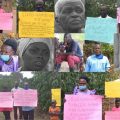 Will Uganda’s next government break the land-grabbing cycle?
Will Uganda’s next government break the land-grabbing cycle?
 Uganda’s plan to allow forceful takeover of private land stirs anger
Uganda’s plan to allow forceful takeover of private land stirs anger
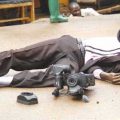 Ugandan army to punish soldiers for torturing Journalist in Kampala
Ugandan army to punish soldiers for torturing Journalist in Kampala
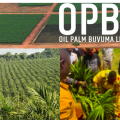 Nine (9) years and still counting: Buvuma residents still await compensation for land grabbed by the Oil palm project.
Nine (9) years and still counting: Buvuma residents still await compensation for land grabbed by the Oil palm project.

Indigenous communities’ complaint against World Bank-linked Nepal Cable Car Project declared eligible for investigation.

The Witness Radio and Seed Savers Network Joint Radio program boosts Farmers’ knowledge of seed and food sovereignty.

Close to six years on, Pangero Chiefdom subjects still linger in pain after the government army’s forceful takeover of their ancestral land.

Indigenous communities in Eastern Nepal accuse the World Bank’s Linked Cable Car Project of rights violations.

Will Uganda’s next government break the land-grabbing cycle?

Women environmental rights defenders in Africa are at the most significant risk of threats and attacks – ALLIED New report

Swedish pension fund drops TotalEnergies amid rising EACOP risks

Uganda moves toward a Bamboo Policy to boost environmental conservation and green growth.

Innovative Finance from Canada projects positive impact on local communities.
Over 5000 Indigenous Communities evicted in Kiryandongo District
Petition To Land Inquiry Commission Over Human Rights In Kiryandongo District
Invisible victims of Uganda Land Grabs
Resource Center
- Land And Environment Rights In Uganda Experiences From Karamoja And Mid Western Sub Regions
- REPARATORY AND CLIMATE JUSTICE MUST BE AT THE CORE OF COP30, SAY GLOBAL LEADERS AND MOVEMENTS
- LAND GRABS AT GUNPOINT REPORT IN KIRYANDONGO DISTRICT
- THOSE OIL LIARS! THEY DESTROYED MY BUSINESS!
- RESEARCH BRIEF -TOURISM POTENTIAL OF GREATER MASAKA -MARCH 2025
- The Mouila Declaration of the Informal Alliance against the Expansion of Industrial Monocultures
- FORCED LAND EVICTIONS IN UGANDA TRENDS RIGHTS OF DEFENDERS IMPACT AND CALL FOR ACTION
- 12 KEY DEMANDS FROM CSOS TO WORLD LEADERS AT THE OPENING OF COP16 IN SAUDI ARABIA
Legal Framework
READ BY CATEGORY
Newsletter
Trending
-

 MEDIA FOR CHANGE NETWORK2 weeks ago
MEDIA FOR CHANGE NETWORK2 weeks agoWomen environmental rights defenders in Africa are at the most significant risk of threats and attacks – ALLIED New report
-

 FARM NEWS2 weeks ago
FARM NEWS2 weeks ago200 farmers demonstrate at parliament, worried about new seed monopoly
-

 MEDIA FOR CHANGE NETWORK1 week ago
MEDIA FOR CHANGE NETWORK1 week agoEvicted from their land to host Refugees: A case of Uganda’s Kyangwali refugee settlement expansion, which left host communities landless.
-

 MEDIA FOR CHANGE NETWORK1 week ago
MEDIA FOR CHANGE NETWORK1 week agoWitness Radio and Seed Savers Network are partnering to produce radio content to save indigenous seeds in Africa.
-

 MEDIA FOR CHANGE NETWORK4 days ago
MEDIA FOR CHANGE NETWORK4 days agoIndigenous communities in Eastern Nepal accuse the World Bank’s Linked Cable Car Project of rights violations.
-

 MEDIA FOR CHANGE NETWORK6 days ago
MEDIA FOR CHANGE NETWORK6 days agoWhy govt is launching a comprehensive digital land registry
-

 MEDIA FOR CHANGE NETWORK2 days ago
MEDIA FOR CHANGE NETWORK2 days agoClose to six years on, Pangero Chiefdom subjects still linger in pain after the government army’s forceful takeover of their ancestral land.
-

 MEDIA FOR CHANGE NETWORK2 days ago
MEDIA FOR CHANGE NETWORK2 days agoThe Witness Radio and Seed Savers Network Joint Radio program boosts Farmers’ knowledge of seed and food sovereignty.
